www.industry-asia-pacific.com
18
'20
Written on Modified on
Connectivity in the changing robot industry
75 years of the HARTING Technology Group - Optimum solutions from decades of partnership.
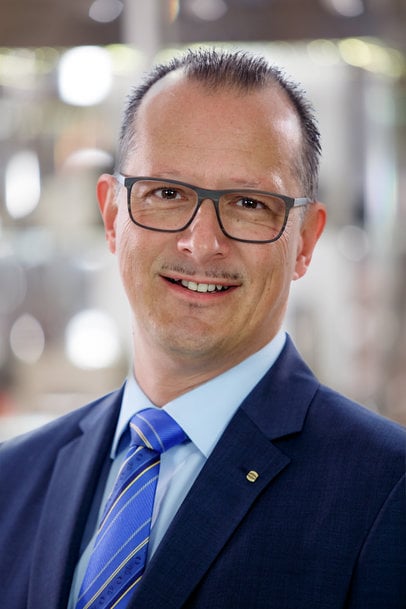
By Guido Selhorst, Head of Marketing Services, HARTING Technology Group.
Quality, competence and trust: these factors form the foundations and guarantee for a good partnership. With this in place, convincing performance and high standards can be achieved. With the willingness and know-how to innovate, companies can always master new challenges, weather competition and shape the future. In this context, HARTING and KUKA are very salient examples.
More than ever before, today's world is characterised by digitalisation - both in the consumer and industrial sectors. With a look to industry, it is clear that this cannot happen without cooperation and partnerships. Specialists with a wide range of competencies and skills are needed everywhere to offer suitable holistic solutions. This is already clearly demonstrated by the large number of platforms and exchange formats that exist for IoT and IIoT systems today. This understanding of the bundling of competencies and requirements has shaped the cooperation between KUKA and HARTING from a very early stage. Some examples from this partnership show the path from the jointly developed specific solution through to the resulting standard.
HARTING has developed into a global technology group within the span of 75 years. Today, the company ranks one of the world's leading suppliers of industrial connection technology for the three lifelines power, signal and data. In addition, the technology group also manufactures checkout zones for the retail trade, electromagnetic actuators for automotive and industrial series use, charging equipment for electric vehicles as well as hardware and software for customers and applications in automation technology, mechanical and plant engineering, robotics and transportation, among others.
The success formula: HARTING has always adapted to the respective market requirements and has constantly "reinvented" itself over the decades. For example, the division originally founded to develop music and cigarette vending machines in the 1950s has developed into today's business unit handling the installation of entire shop and cash register systems in food retailing. The further development of actuator technology should also be mentioned here: Originally, magnets developed by HARTING found use in textile machines, while they later also found their way into cars. With the advent of electromobility, the Technology Group bundled its fields of expertise - in this case connectivity and automotive - to develop infrastructure solutions for the e-mobility market.
A high level of innovation, uncompromising quality, pronounced customer orientation, an international focus and social responsibility were decisive factors in the company's success story. As the driver and engine of Industry 4.0, the world of tomorrow is being shaped and co-determined.
KUKA is an internationally active automation group. As one of the world's leading suppliers of intelligent automation solutions, the company offers its customers everything from a single source: from robots and manufacturing cells to fully automated production systems and their networking. KUKA solutions are mainly encountered in markets such as automotive, electronics, general industry, consumer goods, e-commerce/retail and healthcare.
The mechanical engineering specialist is firmly rooted at its home location in Augsburg. The company's success story began here in 1898, when Johann Josef Keller and Jakob Knappich founded an acetylene plant for lighting. Over time, the telegram abbreviation from the initial letters of the company name "Keller und Knappich Augsburg" became the brand name KUKA. This is where tradition meets innovation.
Since embarking on cooperation more than 20 years ago, HARTING and KUKA have always created new solutions with a view to market requirements. One example is the constantly increasing EMC requirements which led to special EMC housing designs for connectors - and which have meanwhile become a standard today. Also in the field of robotics production, it is essential to reduce the installed number of parts so as to keep complexity low and reduce the number of production steps. Here, KUKA and HARTING joined forces and took a look at the processes and created a specific component, the so-called multifunctional housing, which optimally combines the connector function and IP67 sealed electronics housing. HARTING is now offering such system solutions in various application areas: whether data cabling in the controller, power cabling to the robot itself or solutions which take mechanical requirements into account, such as specific transition elements for a PROFINET infrastructure on axis 3.
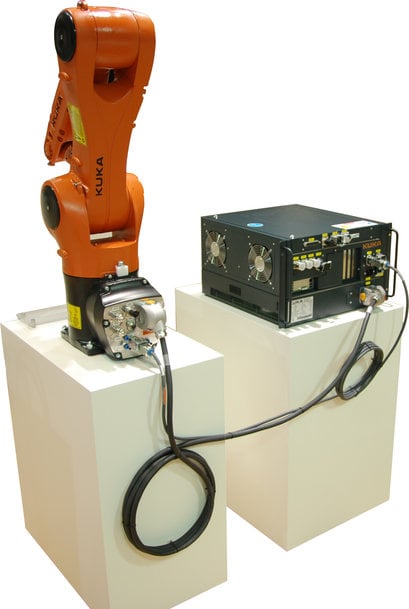
HARTING Han-Yellock® connector system on KR AGILUS robot system from KUKA
In recent years, HARTING and KUKA have repeatedly concerned themselves with the miniaturization trend. The KR AGILUS robot system, for example, is a new compact robotic system which is ideal for use in increasingly flexible production environments. The requirement for the plug-in connection here: fast and intuitive handling, in which the design aspect also plays an important role at the same time. With Han-Yellock®, a new innovative connector system featuring completely new locking technology, the ideal solution was found for this new robot series.
Finally, the intensification of cooperation was particularly evident in the extension of the technologies and solutions to all the so-called "lifelines" of an application: In addition to the normal connectivity such as plug connections at the robot base or data interfaces at the transfer points, both upward integrations such as system solutions and products such as switches were used. Here the demand for flexibility and adaptability to the communication systems used by the customer in automation was relevant. HARTING switches became the central communication element, as they were able to process various automation systems in a very open manner. Thanks to this consistency of the power-data-signal infrastructure on the KUKA robot, HARTING was able to offer a holistic approach to these three infrastructure elements - customer-oriented, application-neutral and flexible, and thereby always the ideal solution.
In the field of Industry 4.0 developments, KUKA and HARTING worked on the first joint solutions at a very early stage. For example, KUKA equipped the HARTING I4.0 demonstrator - the "HAII4YOU Factory" - with new LBR iiwa type sensor-based robots. The system thus became the ideal stage for an integrated Industry 4.0 approach for individual and cooperative production systems all the way through to quantity 1.
Flexibility, miniaturisation and also modularity are highly significant trends that are driving joint developments today. While around the middle of 2000 years, the robot control cabinet was as large as a control cabinet, today's solutions are no larger than a desktop PC. Especially application areas for small robotics call for solutions that are adapted to resources. In addition to the smaller robot, the controller must also be more compact in the future, as there will hardly be any space envisaged for it. In response to this situation, KUKA launched the KR C5 micro onto the market, which is tailored precisely to these application areas. Connectivity must also adapt in line with these developments. For this reason, HARTING KUKA is also providing a new solution for this new controller family in the form of the "har-motion connector", which is particularly suitable for use in compact robotics. Adapted both to the power requirements and to the space available, it can be used flexibly for transferring the lifelines of the robot.
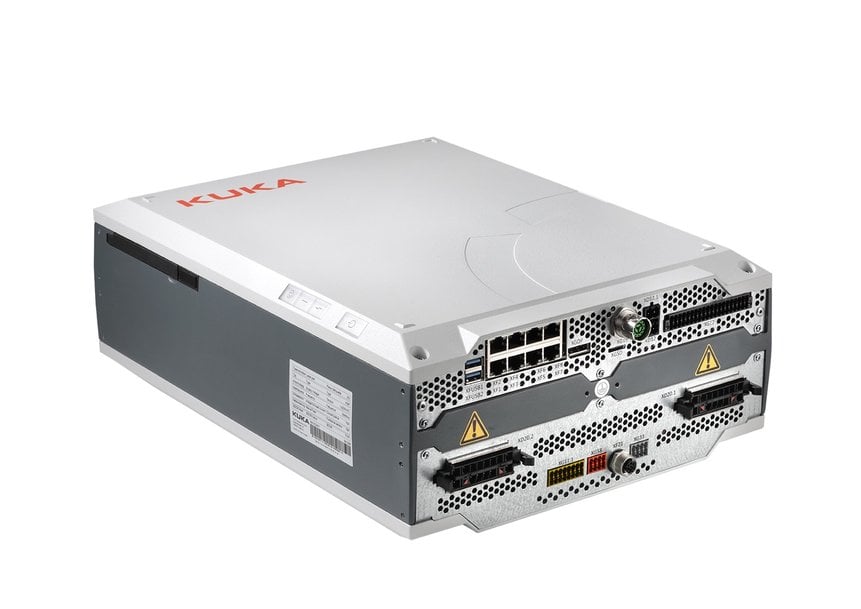
KUKA KR C5 micro controller with the two new har-motion interfaces
Even the larger robots, however, are also subject the miniaturization trend. This is particularly evident in the new KR C5 control system. This system offers customers the option of operating up to three machines on one control cabinet in the same space as a previous control system. A performance adjustment can also be easily and flexibly accommodated by selecting different controllers. This is enabled by a completely new modular and scalable structure of the cabinet system. A docking solution was developed for this purpose, which makes adaptation to customer requirements very easy: The control systems are inserted into the cabinet like drawers. In order to enable the transfer of the so-called lifelines for such a flexible coupling, a special docking connector solution was developed in close cooperation. Following the requirements of the protection class applicable in the cabinet and the reduced space conditions, the new Han® Board connector proved an optimal solution, allowing for the mechanical plugging necessary for this case.
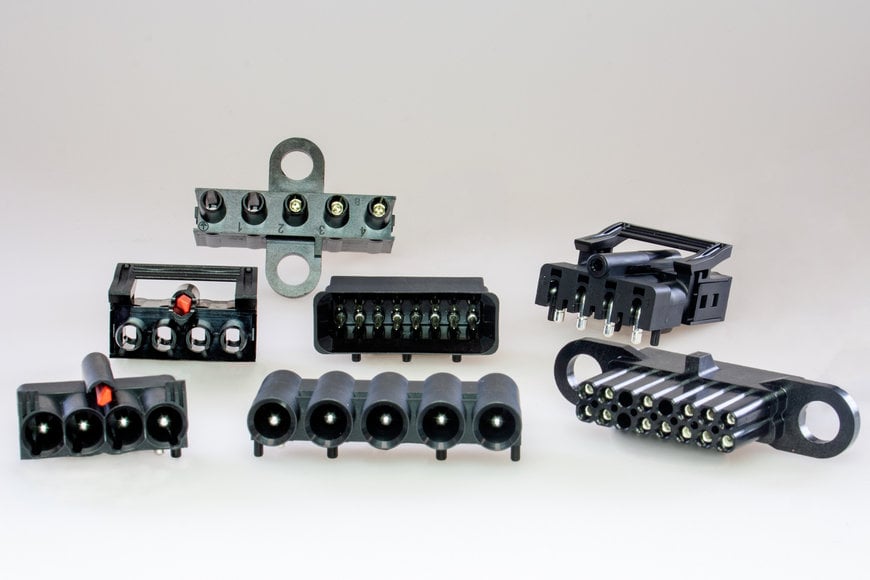
HARTING Han® Board connector system
Special mechanical guides, as well as the design structure of the connector solution, ensure the necessary tolerance compensation.
Responding to mega-trends, long-term partnerships, which are characterised by mutual understanding, detailed application knowledge and a common view of holistic customer benefits will be capable of developing the necessary technologies and the concrete new product solutions. The connectivity and infrastructure solutions incorporated in the new KR C5 generation of control cabinets demonstrate this to a particular degree.
Abdullah Cevik has been with KUKA for 31 years. After holding various positions at the Augsburg-based robot and automation specialist, he was appointed Purchasing Manager in 2011. In this function, he is the first point of contact for the HARTING Technology Group. Cevik’s first encounter with HARTING dates back to the 1980s - long before his career started at KUKA. "I was around 20 years old and at that time I was still employed in control cabinet construction", as Cevik remembers. "At that time, 'the HARTING' was always in use at KUKA. It was practically the epitome of a plug. For him, the name has stood for the product ever since: connectors for scenarios in industrial environments. Many years later, Cevik also had the opportunity to meet the people behind the product. "As Purchasing Manager, I was a guest at the HARTING stand at the Hanover Fair to find out about the latest trends in the Technology Group.
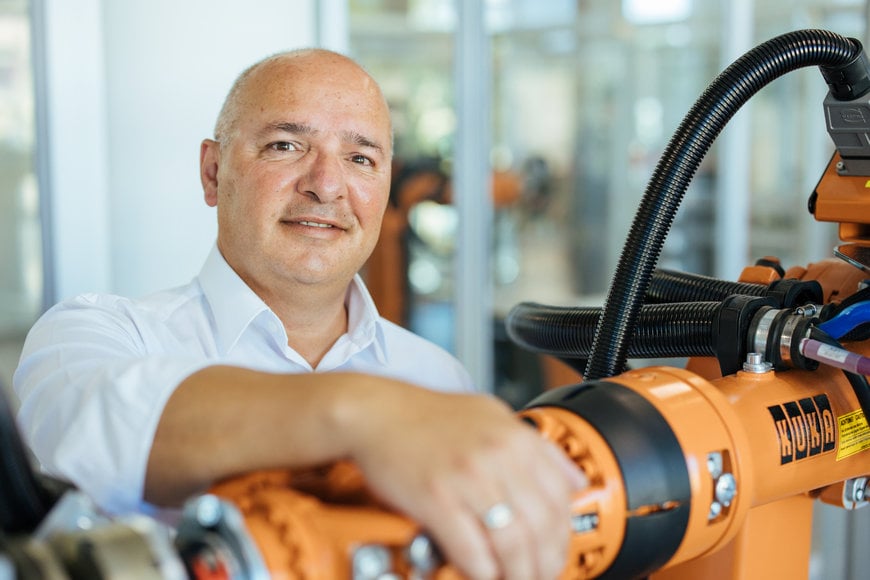
It was here that I got to know the managing directors Philip and Dietmar Harting - and was thereby able to associate the name not only with the product itself, but also with the founding family. That was a great experience for me". The relationship between KUKA and HARTING has always been based on partnership with mutual respect, honesty and trust. And this idea extends from an operational level through to the management level. As Cevik emphasizes: "We do not perceive HARTING as a supplier. HARTING is more than that: a partner on a global level with whom we have openly and fairly driven joint developments forwards - and will continue to do so in the future".
Statement: "HARTING is not a supplier - HARTING is a partner on a global level, with whom we openly and fairly drive joint developments forward!
In the 22 years that Alexander Rottmair has been working for KUKA, he came into contact with the name HARTING at an early stage: "Back then, during our training, we were still making our own assemblies and installing the various connectors on the robot ourselves", recalls the team leader for electrical design in the KUKA development department. Even then he appreciated the product features of the HARTING connectors, as they had always been "very high quality, robust and well thought-through products". He is still especially impressed by the system logic behind the portfolio: "The products are based on a kind of modular principle, so that they allow a certain degree of expandability".
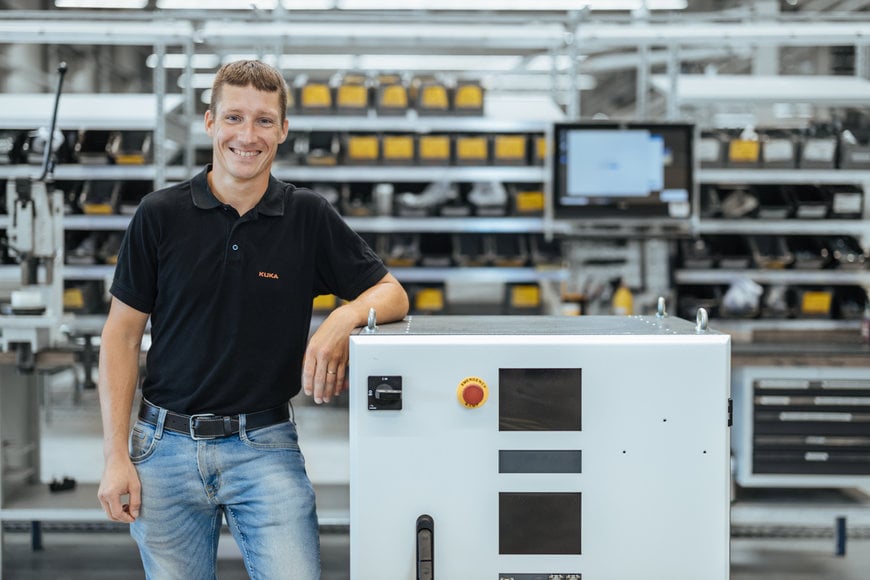
The resulting added value delivers clear advantages - both for KUKA itself and for the robot specialist's customers. On the one hand, the developers and designers at KUKA need fewer processing tools, since crimp contacts, for example, are identical in many product groups and can be processed with the same tools. On the other hand, this offers the customer the advantage of fewer changes, identical approaches and identical handling at the interfaces where clients still has to do their own work.
Statement: "I opt for HARTING because I can rely on a very robust product with a high degree of flexibility, which does not cause any problems in the field!
www.harting.com
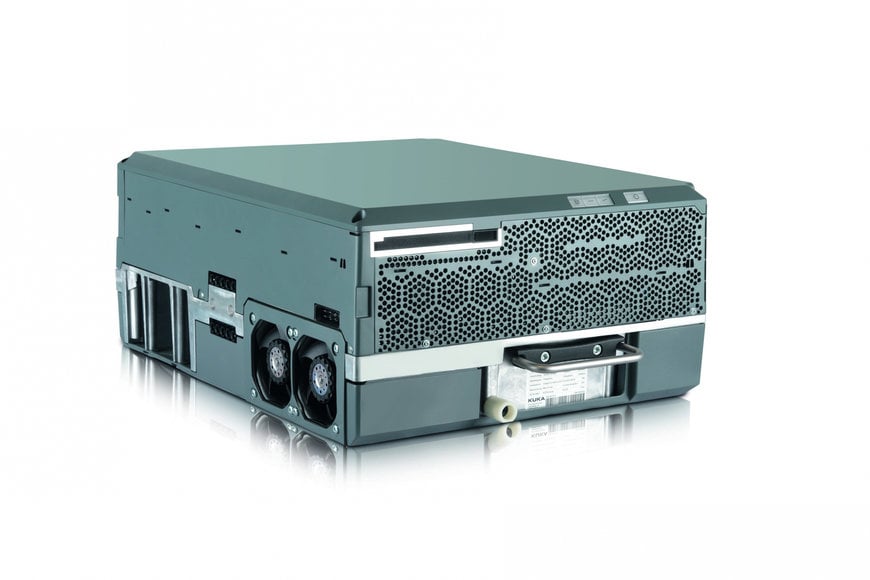
HARTING Han® Board in the KUKA KRC 5 Controller
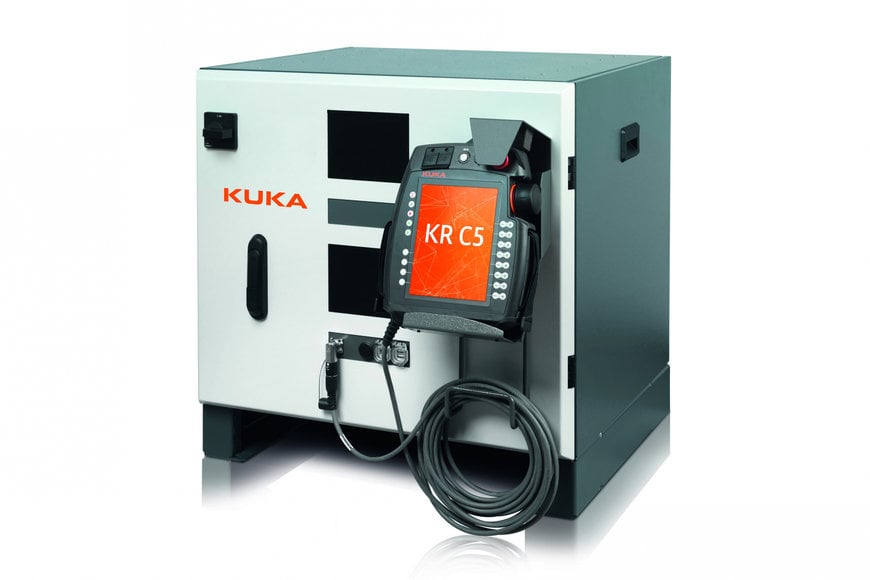
KUKA KRC 5 control cabinet
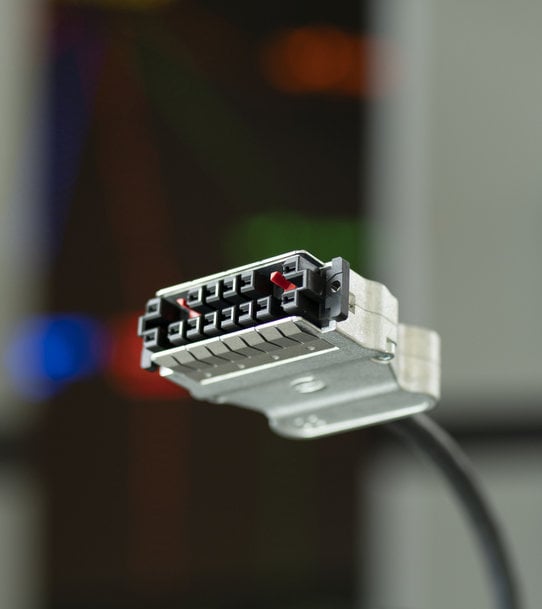
HARTING har-motion connector

